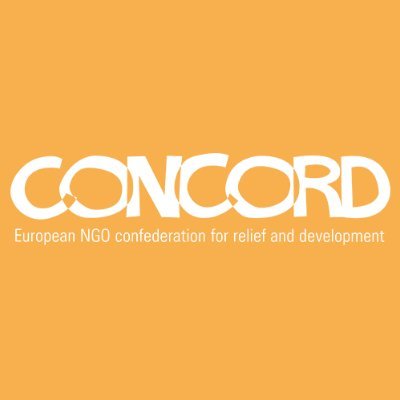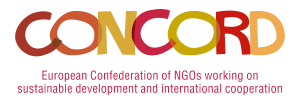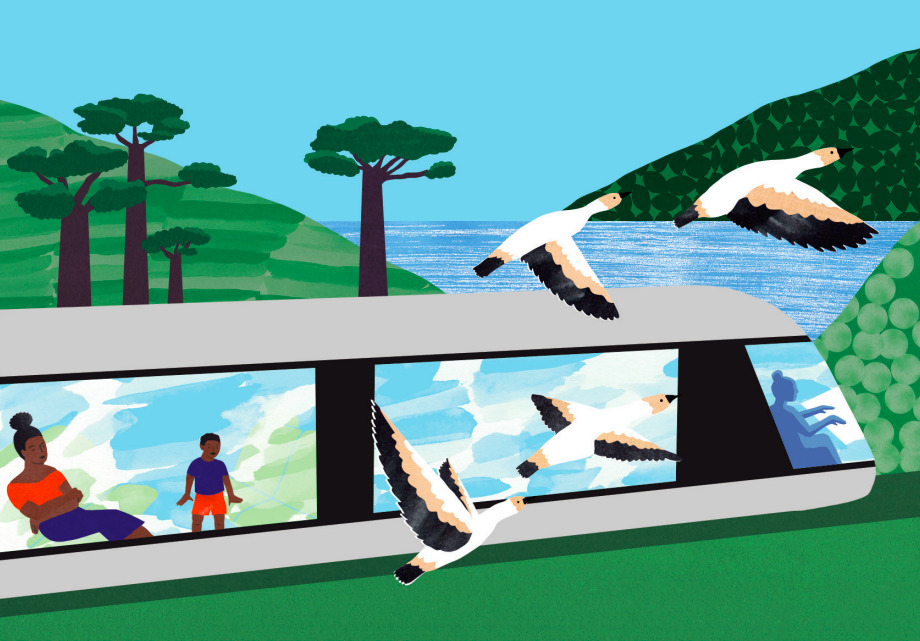Let’s imagine for a moment that we’ve reached the middle of the century.
It’s 2050, and the world looks very different.
As a child, I witnessed how my parents lost their jobs when the industrial garment factory where they worked closed its doors after the pandemic in 2020. Things looked grim back then, but thanks to your support for cooperatives shortly thereafter, I was able to access financing for small, mission-driven businesses and create a different life for myself and my community.
I set-up my company with other women based on our shared love of weaving and colours. We’re now working as equals with everyone having a say. We even won an international award for our successful business model, where everyone earns an equal living wage, benefits from social protection and works in a safe environment.
What is more, we are proudly a zero-carbon footprint company. Today, we’re happy to lead by example – including by paying our fair share of taxes so others have opportunities like us. I’m more hopeful than ever.
Greetings from a future that works for all,
Engracia
Sent from San Sebastian, El Salvador (but it could be from anywhere else) in 2050
There was a point in 2020 when we began to collectively realise a few basic things.
One, the importance of universal access to public health systems and social protection. The EU and its Member States needed to invest in good quality and resilient public health systems accessible to all.
Two, it was no longer be possible to ignore structural inequalities. Efforts aimed at tackling inequalities needed to become a clear priority, including boosting aid levels, focusing on the rights of women and girls, promoting labour rights and environmental standards, addressing food and nutrition security, ensuring every child and youth can continue their education, tackling the drivers of nature loss and climate change, supporting the progressive collection of taxes, addressing tax avoidance, and ensuring debt cancellation.
Three, we also realised we had to rebuild our economy better, so it would serve all people and our planet. We needed to invest in economic sectors and actors which contribute to sustainable development, allowing them to create decent jobs for all. Mission-driven and local, micro, small and medium-sized enterprises guided by sustainability and inclusivity would have to lead the way out of the crisis.
And the final realisation? Solutions needed to be locally owned and people-centred. The EU needed to promote a safe environment for civil society to participate in the decision-making, because they are the key to reaching and supporting local communities.
Did you know that my family’s life changed forever after the setbacks in 2020? When you brought together civil society, governments and others to share their views about how to rebuild better after the coronavirus outbreak, we saw democracy in action. We were so inspired we set-up people’s assemblies in every neighbourhood! I’m actually going to one this afternoon!
Today we’re evaluating, together with our mayor, the wellbeing budget that we introduced a decade ago. Thanks to that, our well-lit streets are safer, especially for women and girls, and every household has access to energy and running water.
I was even able to set up my own hair salon! A four-day working week allows me to have more spare time to spend with my children and even give classes on setting up and running a small business – a dream come true!
Greetings from an equal future,
Ahmed
Sent from Jamrud, Pakistan (but it could be from anywhere else) in 2050
So, what happened in 2020 that forged a path to a more equal future?
The EU put in place an ambitious recovery plan, and took action to end inequalities globally and build an inclusive and sustainable economy when deciding on:
✓ its new partnership with Africa, its relations with the Group of African, Caribbean and Pacific States and with other regions of the world soon after
✓ its global COVID-19 response
✓ its next 7 year budget and the Neighbourhood, Development and International Cooperation Instrument
✓ its multi-annual programmes with partner countries
✓ its new trade and investment priorities
And just in time.
Today, 30 years after the pivotal year 2020, we can proudly say our continent followed the right path. Your political push and assistance for a global inclusive, green transition helped us invest in environmentally friendly, safe and accessible infrastructure and mobility.
Now we not only have sustainable transport within my city, but also to and from other towns and cities, and even across my beloved continent.
These crucial investments gave us clean air, lush forests and clear rivers. Today, on the train to my work, I saw some geese fly on their migration route across clean, blue skies – I feel so grateful.
Greetings from a blue sky future,
Jendayi
Sent from Bulawayo, Zimbabwe (but it could be from anywhere else) in 2050
Join us in building an equal, blue sky future full of opportunities – a future that works for all!
When my mother was younger, a doctor told her that her asthma got worse because of the open fire cooking and heating in her home. Her poor health and hunger forced her to drop-out of school. He was really worried about what the future had in store for her – she was only ten years old in 2020.
Luckily, a lot has changed since then. Thanks to your deliberate choice to help secure food and nutrition, as well as much-needed quality public healthcare and education that everyone can access and afford, she was able to return to school and become the person she always wanted to be: a health and safety advisor for the government!
The first thing she did was to make sure indoor use of biomass fuel became a thing of the past. She inspires me to dream even bigger.
Greetings from a future of opportunities,
Nuru
Sent from Marsabit, Kenya (but it could be from anywhere else) in 2050
What can you do ?
1. Download the postcards and send them to an EU official.
2. Like and share our posts on Twitter, Facebook, LinkedIn and Instagram to show your support. Use #PostcardsFrom2050 to join the conversation.
3. Stay informed and explore our research, analysis and proposals.
Proposals for mainstreaming equality in international cooperation
With the joint adoption of the 2017 European Consensus on Development, the EU committed to mainstreaming the reduction of inequality in their development cooperation; to systematically integrate equality into all domains of EU development cooperation. In this paper, CONCORD provides concrete proposals for how to do it.
Busting global sustainable economy jargon
Do you know the difference between a green economy and a feminist economy? Confused by acronyms like CSR and RBC? And what are Business and Human Rights Guiding Principles anyway? A sure way to lose public interest in and support for building a sustainable global economy is to overwhelm people with jargon. But there is great unexplored potential in business enterprises shifting away from the path of ‘business as usual’ towards one of sustainability. That is why we prepared a glossary to demystify commonly used terms and concepts related to sustainable economies.
EU global response to COVID-19: Forging a path to an equitable future
This policy brief provides the EU and its Member States with recommendations for the global response to COVID-19. These recommendations highlight that tackling inequalities and building an inclusive and sustainable economy should be on top of the EU and Member States’ priority list.
Inequalities unwrapped: An urgent call for systemic change
Rising inequalities are among the most complex and pressing issues of our century. How can we tackle this multidimensional problem to ensure no one is left behind? Our new report calls for a systemic approach and puts forward concrete solutions which should guide EU leaders to reduce different forms and drivers of economic, social, environmental and political inequalities.
Postcards from the Future tell four unique stories of people from different corners of the world living in 2050. The stories visualise a future which is possible if decisions-makers prioritise inclusivity and building a sustainable economy in the political decisions they make today, as COVID-19 forces us to rethink our priorities and approaches.
With these postcards we hope to engage EU and national-level decision-makers, politicians, allies and partners, as well as civil society, to imagine a better future for all.
A future which works for all, a future where people live in harmony with nature, a future where everyone has a say, and a future full of opportunities.
The development of these postcards has been a true collaborative process with members in our Confederation, as we are always eager to push conversations forward together in creative ways.
Find out more about us and our work

LATEST NEWS

Our members

About CONCORD

inequalities & sustainable economy

OUR RESOURCES
Get in touch
Want to get engaged? Need more information? Contact our policy expert!





